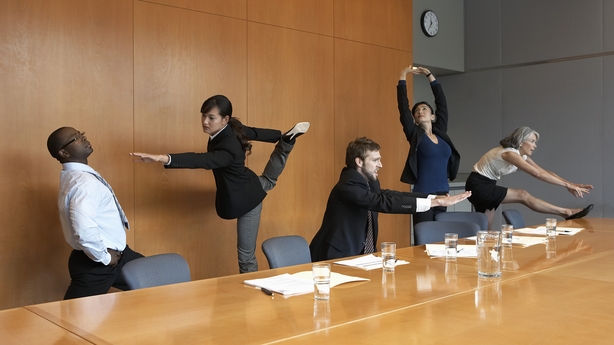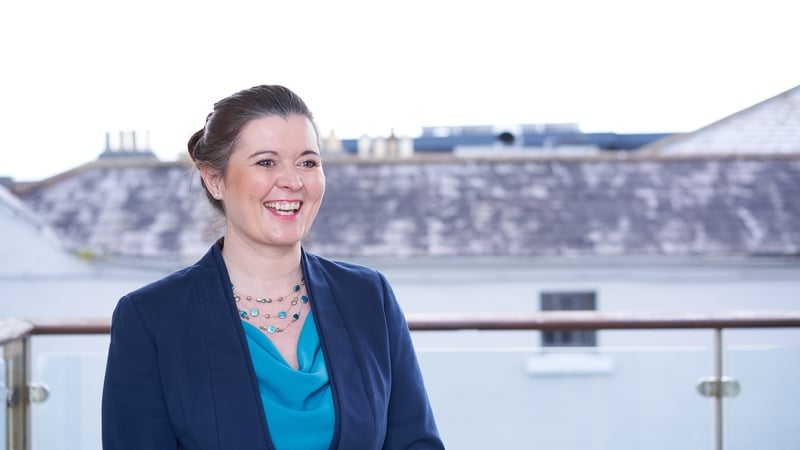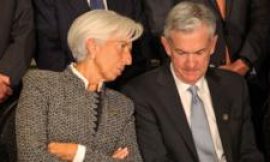“Burnout is like getting thrown off a luxury high speed train and landing in the wilderness.”
Caroline Hughes was Global Head of Leadership at one of Ireland’s largest multinationals, doing a job she adored at a company she loved.
She was thriving on being a high achiever, travelling the world, meeting amazing people, fulfilling all the requirements and demands that were being made of her and really enjoying it.
Until one day in December 2019 when she collapsed.
“You just realise that you were holding everything together on the outside and life looked great, but you’re falling silently apart on the inside.”
Boston Consulting Group reports that 48% of workers across eight countries are currently experiencing burnout, with women disproportionally affected.
A 2024 survey by Employment Hero in the UK revealed that nearly two-thirds of women report experiencing burnout in the workplace.
Among them, 18% have felt stressed at work every day for three months—double the rate compared to men.
Ms Hughes is now CEO of Conscious Leadership Development, working with leaders to achieve success without burning themselves—or their teams—out in the process.
She had a transformational journey through recovery, after more than twenty years working in senior positions in banking and industry.
In her early 40s and ended up in hospital, on a ward with people in their 70’s and 80s, with a cardiologist telling her that her blood pressure was so low they didn’t know how she was still standing.
She was told she had marks on her brain that resembled a stroke, but they didn’t think she had one.
“They said we’ve got to understand what is happening physiologically that a 40-year-old woman is collapsing at this rate.
“And if there’s nothing physiologically that we can find, we’re going to start talking about your life.”
When Ms Hughes looked at her life, she said ‘burnout’ was not even in her vocabulary at that time.
What she thought was resilience was really her sheer willpower, masking something she wasn’t paying attention to.
“If I look at that combination between being overly committed, over identified with work, maybe feeling myself indispensable and then not really paying attention to my well-being; all that came home to roost.”

In 2019 there weren’t the same conversations being had about well-being as there are now, according to Ms Hughes, but looking back the signs were there.
She can now acknowledge she had constant fatigue and it wasn’t unusual for her to spend long periods of time in bed over the weekend, so she’d be ready for the working week ahead.
During that period, she experienced a lot of brain fog and poor-quality sleep as her brain became overactive at night.
“I see the picture very differently now, but if you talked to me in 2019, I would have just said I get tired, my jaw hurts, I’m not sleeping very well.
“I wasn’t in conversations where we were talking about the symptoms of burnout, what does it mean to push too far, and how much is too much. Even though it’s only five years ago, that conversation simply wasn’t happening.”
It took Ms Hughes 18 months to fully recover, during the first six months she experienced intense, physical exhaustion that she needed to recover from.
“I had a doctor saying to me, you are so tired you need to cook your lunch and dinner together so that you can microwave it, because you don’t have the energy to cook twice a day. That’s how depleted my physical energy was.”
Ms Hughes hit rock bottom while Covid restrictions were in place, but the slower pace and lack of travel allowed her to focus on herself and her recovery.
She needed to get physically fit again and understand her own mind and learn how to say ‘no’.
“It was also absolutely transformational in my life and my priorities. I got very clear on the life I wanted to have.”
During this process she discovered breath work and core techniques to figure out what was happening without necessarily having to talk about it.
“That’s where I really started to become interested in, coaching as a tool then for coping mechanisms and strategies and looking at my mindset.
“What I learned was that physical exhaustion was big part of my burnout, but understanding better how the mind works and how we process stress became something that I was really interested in and was willing to put myself as my own case study around it.”
“It was also absolutely transformational in my life and my priorities. I got very clear on the life I wanted to have.”
Executive burnout can have a cascading effect on the organization internally, and it can have a damaging effect externally to an employer brand in the market.
Covid has shifted the dial around what’s acceptable or not in the workplace and employees are more vocal.
In organisations where there’s a prevalence of stress or burnout, employees tend to choose differently given there’s a very buoyant market out there.
Ms Hughes advises clients to prioritise their wellbeing and what really matters in their lives, because burnout is preventable.
“Let’s redefine what success means, because sometimes we pay a very high price for the success, we think we want.”
The Deloitte 2024 Wellbeing at Work survey found at least four out of 10 workers, managers, and executives say they “always” or “often” feel exhausted or stressed.
The situation is so bad that 59% of workers, 66% of managers, and 71% of the C-suite say they’d seriously consider taking a job with another company that would support their well-being.
81% said their wellness is more important than being promoted.

There are some good interventions happening in companies, with more employers now offering, yoga, meditation, wellness sessions and financial support and planning to reduce some of the stressors.
However Ms Hughes finds it disappointing that she sees less of a desire by companies to get to the real heart of what the contributors are from an organisation standpoint to stress and overwhelm, which he says is typically got to do with the balancing of workload or the allocation of resources and appropriate teams relative to the demands.
“I call it ‘wellness washing’, these great interventions that look good on a report.
“But is it actually shifting the culture away from ‘being always on’ which is an indicator of what’s going on in Western culture at the moment, to truly getting into a conversation about well-being.
“I still think we have quite some distance to travel there. You need to get to the heart of the matter rather than offering support to alleviate the symptoms.”
Younger generations, particularly younger Millennials and Gen Z are opting out of future top leadership roles.
Deloitte’s 2024 Gen Z and Millennial Survey found Work/life balance is their top priority, as long working hours drive stress.
So, who will our future leaders be if younger generations are seeking ways to avoid burnout at the top?
A study commissioned by ICBE Business Excellence Skillnet into the perceptions and motivations of Future Leaders, found concern around work-life balance was the number one reason why 27% of respondents would choose not to pursue the career progression.
According to the findings of ‘Answering the Call to Lead: Future Leader Perceptions, Motivations, Skills and Needs’, most of these Future Leaders are ambitious and feel they have the necessary Leadership skills, however, one third of them do not intend to answer the call to lead.
One third hope to, but not for another two to five years and one third are ready and waiting to be asked to step up.
One of the key findings was that work-life balance is one of the key deterrents to answering the call to lead.
For participants in this study, the phrase “is the juice worth the squeeze?” summed up the trade-off between advancing in the organisation and Work Life Balance.

Expectations on leaders have always been high, but in today’s dynamic business environment, they are even higher.
Respondents to the Future Leaders survey also highlighted their concern that there can be a sense of ‘tokenism’ and ‘lip service’ when it comes to wellbeing in organisations today.
“Our research finds that career ambition and personal drive are key for Future Leaders,” said Vivienne Kiernan, Head of Client Engagement at the Irish Centre For Business Excellence.
“However, these ambitious and driven individuals will not step up if they feel that the organisational climate will not enable them to contribute in a meaningful way, or if is only paying ‘lip service’ to wellbeing. “
Ms Kieran says organisations need to capitalise on future leader ambition by listening carefully to how they want to contribute and by supporting them on their journey to the Senior Leadership Team (SLT).
“Work life balance should be discussed and role-modelled among the SLT, signalling to Future Leaders that leadership is manageable – that having a work-life balance is achievable.
“It is crucial for organisations to adopt a slow, nurture-based approach to Future Leaders, to listen carefully to how they wish to contribute and to offer them the support they need by removing barriers.
“Providing the right tools, training, and showing that work-life balance is achievable in leadership roles are essential steps in cultivating the next generation of leaders.”




